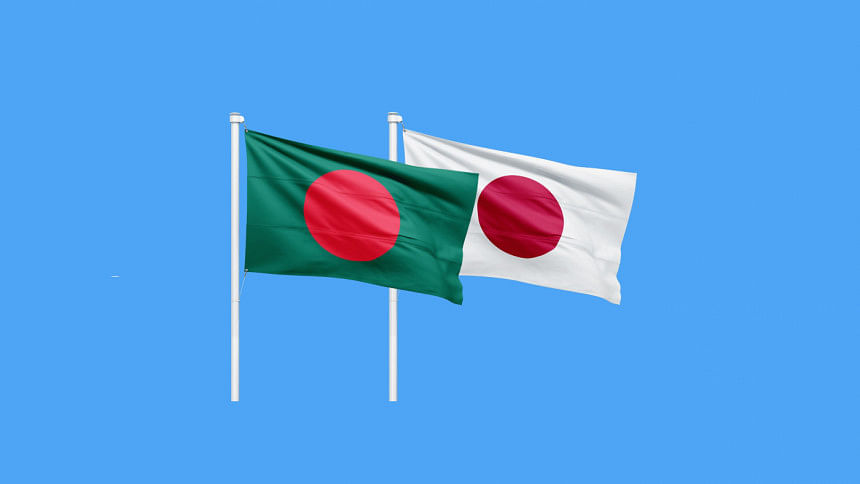Bangladesh, Japan begin talks on trade deal

The government yesterday initiated talks to sign the Economic Partnership Agreement (EPA) with Japan in order to retain the duty benefit after Bangladesh's scheduled graduation to a developing nation in 2026.
State Minister for Commerce Ahsanul Islam Titu formally announced the beginning of the negotiation at a press conference at his ministry office in Dhaka.
"Bangladesh will face more than 18 percent duty on the export of goods after 2026 if the EPA is not inked," said Senior Commerce Secretary Tapan Kanti Ghosh.
If deals are not struck with trading partners before 2026, Bangladesh, as a graduating nation from least-developed country (LDC) status, will have to seek the continuation of the duty-free market access until 2029 bilaterally to the member countries of the World Trade Organisation.
The 13th ministerial conference of the WTO in Abu Dhabi last month agreed to provide the duty benefit to the graduating LDCs for additional three years after graduation.
As such, Bangladesh will have to pen bilateral trade deals in order to retain duty facilities in the post-LDC era.
Thus, Bangladesh is negotiating with major trading partners to sign preferential deals like the EPA, the Comprehensive Economic Partnership Agreement, the Preferential Trade Agreement, and the Free Trade Agreement.
Japan is the only country in Asia where Bangladesh's exports crossed the $1-billion mark nearly one decade ago as shipments to the economy started rising on the back of the duty benefit extended to the LDCs.
The export of merchandise, especially garment items, to Japan was $1.90 billion in the last fiscal year of 2022-23 and the import stood at $2.02 billion, according to data from the commerce ministry.
The figures indicate that Japan is a growing export destination for Bangladesh and Japanese investors are also eager to invest here as they see the country as a potential business destination thanks to its expanding consumer class.
A recent survey of the Japan External Trade Organisation (Jetro) showed that about 85 percent of the local and Japanese companies with operations in both countries want their governments to sign an FTA.
"So, both countries have agreed to sign the EPA," Ghosh said.
The pact will go beyond tariffs and will include 17 more sectors such as investment, trade in goods, trade remedies, rules of origin, customs procedures and trade facilitation, sanitary and phytosanitary, labour, business environment, transparency, intellectual property, and e-commerce.
Before the formal launch of the negotiation, three rounds of meetings by the joint study group were held last year in order to pave the way for a formal launch, the senior secretary said.
Both sides have the target to conclude the negotiation by December 2025 so that the duty benefits can be ensured long before their expiry in November 2026.
Speaking at the briefing, Ahsanul Islam Titu said Japan is a strategic partner for Bangladesh and projects like the Matarbari deep seaport and the metro rail in Dhaka are being implemented with assistance from Tokyo.
IWAMA Kiminori, ambassador of Japan to Bangladesh, said it is not possible to say how much both countries will benefit if the EPA is signed.
"However, it will be a win-win deal for both countries."
"The EPA is not all about tariffs. Rather, it includes many factors like trade facilitation, non-tariff barriers, removal of customs barriers and the whole economy of both countries."

 For all latest news, follow The Daily Star's Google News channel.
For all latest news, follow The Daily Star's Google News channel. 






Comments